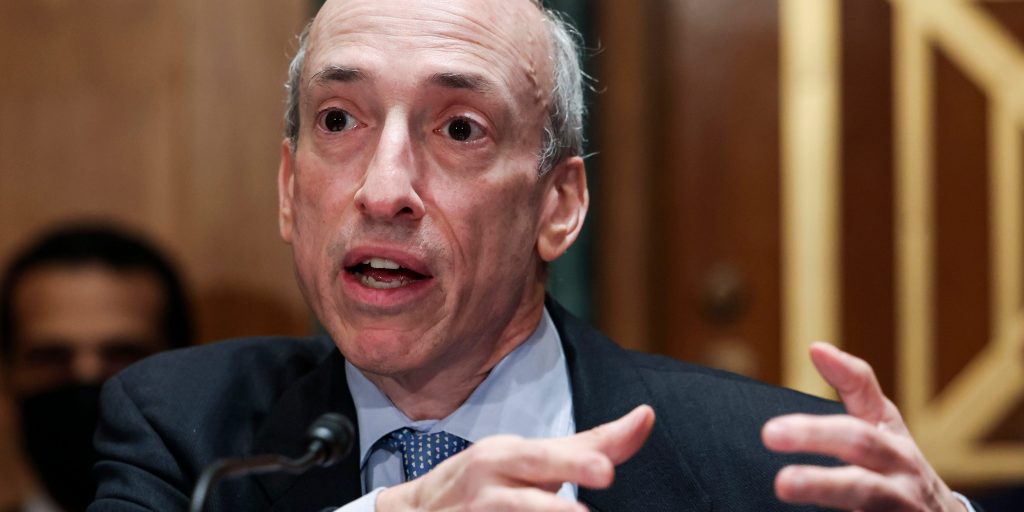- The SEC will consider exempting crypto firms from some regulatory requirements, Chief Gary Gensler said.
- He noted that investors were unprotected because some firms refuse to comply with the agency's rules.
- The SEC doubled staffing its in crypto unit in May, doubling-down on its policing of the sector.
The Securities and Exchange Commission will consider cryptocurrency firms exempt from some rules to encourage compliance across the industry, according to SEC Chair Gary Gensler.
In an interview with Yahoo Finance, Gensler said some firms in the crypto space have avoided registering with the regulator. That prevents many major players from having to properly disclose financial risks and other company information to investors, he added.
The past month has seen a domino effect of crypto firms buckling under the stress of crypto winter, as a handful of companies and platforms dealt with solvency issues and limited or halted customer withdrawals. Ordinary investors in some cases have appeared not to know that their funds were not insured or safeguarded in some way that would prevent an exchange from shutting them out of their accounts.
In both the stock market and the crypto space, the impact on retail traders has been a big focus for Gensler as head of country's top regulator.
"I've said to the industry, to the lending platforms, to the trading platforms, come in, talk to us," Gensler said, adding that the agency had the authority to give exemptions to certain regulatory and disclosure requirements, which could be tailored depending on the type of services and tokens a company offered.
The aim is to get crypto companies to make more disclosures to their customers and investors, something that firms in the space haven't always been eager to do.
"The public is largely unprotected due to non-compliance in this space," Gensler said. "The public benefits by knowing full and fair disclosure and that somebody is not lying to them. You know, basic protections."
Gensler noted that some crypto firms are offering returns as high as 20% to investors, although the typical interest rate for short-term deposits in the industry 1%. That's a sign that users are vulnerable to major risks, potentially without being fully aware of them.
The SEC has already taken some action against firms it sees as bucking compliance. BlockFi is one such player, which the regulator said had issued unregistered securities. The SEC fined the company $100 million earlier this year. Ripple Labs execs have been charged $1.3 billion on similar grounds – as have 80 other entities for unregistered assets or fraudulent charges, the government agency reported.
The SEC also doubled staffing in its Crypto Assets and Cyber Unit in May, an effort for the commission to double-down on regulation of what Gensler has described as "the Wild West" of financial markets.
